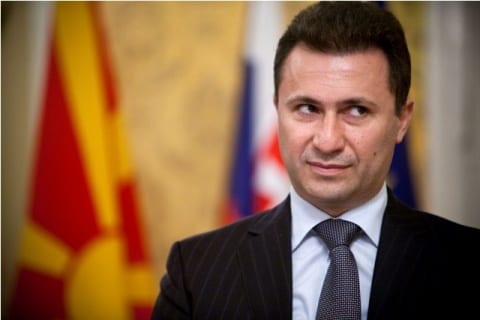The positive signs sent by the new leadership should be carefully considered by Greece
The dethroning of Nikola Gruevski
By Stavros Tzimas
The new government alliance between the Social Democratic Union and ethnic Albanian political parties in the Former Yugoslav Republic of Macedonia (FYROM) clinched a landslide majority in last Sunday’s local elections, and especially in the capital, Skopje, which has a single municipal unit of around 800,000 citizens.
Prime Minister Zoran Zaev emerged from the first round of municipal elections as the clear winner, consolidating his power and dethroning the nationalist former premier Nikola Gruevski as the leading force in the capital.
The outcome of the polls shows that things are about to change quite significantly in FYROM and it is likely that the Zaev government will soon reveal its cards in regard to the name dispute with Greece. It will be an issue close to the top of its agenda, as NATO membership is one of its key goals.
Over in Athens, officials are waiting for the election process in the neighboring Balkan country to be formally completed and Zaev to emerge the undisputed leader so that a new era can be heralded in the name talks and both sides can possibly heal this persistent sore spot.
Zaev has already sent signs that are positive for Athens in the runup to December’s parliamentary elections, commenting on Gruevski’s obsession with bringing ancient history into the present: “I can say that the era of erecting new monuments, of naming highways, airports and sports facilities after historical figures, is over. History unites us because it is shared and we are not ashamed to say that we share a history with this or that nation, because such are the values of Europe.”
In regard to the name dispute with Greece, Zaev has said that his government aims to address the issue “with transparency, with the participation of the opposition, and then finalize any decisions with a referendum.” The intention, he has said, “is to resolve the problem and not stand in the way of a solution.”
Hopefully his messages have been interpreted correctly in Greece by diplomatic circles and the entire political leadership. What must be avoided, however, is creating a climate of exaggerated optimism that Skopje will radically change position on the name issue. In contrast to Gruevski, Zaev and his government may be willing to accept some mutual compromises, but they will not go as far as challenging society by conceding too much ground on such a sensitive matter, which they know will carry a huge political cost. This is, after all, more than apparent in the government’s public statements.









